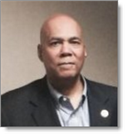Okay, that is a feeble attempt at the real question, which is excellent. David asks the coaches:
How do I best position myself for the last 10 years or so of my working life? I’m 56 in software product management and financially would like to work full-time if possible until at least 67 if my health holds.
I’ve been with my current company for 6 years now and like the work, but recognize there is a real risk that I will be cut in budget cycles in the coming years. Job search at around 60 is not something I’m excited about.
Should I be pushing myself into independent contracting on the side now (I’ve done this in the past – cost of sales is a real challenge) or are there areas of technology that make sense for older workers? (e.g. security, audit)
I don’t have the ability to reduce my expenses significantly. I have some retirement set aside, but not enough to retire early. I stay current with technology (cloud, mobile, etc.), but recognize there is a bias against older technology workers unless you’re a Cobol programmer….
This is a great, wise, and even scary question. But it’s real, and many people are facing it. I was anxious to see what my coaches would send back, and I wasn’t disappointed. Here are the responses I received:

Positioning yourself for the last 10 years of your career means making yourself as indispensable as possible. What is your superpower? What do you do better than anyone? Is there a task or project no one else wants to do that is valuable to the company AND involves your superpower? Can you become the SME for one or more issues? Can you make yourself the go-to-guy for certain types of technology, specific problems, or training? Those activities will augment your value to the company and brand you as the guy everyone thinks of to solve a certain problem.
As an older worker, you can do a few things to work against the stereotypes you mentioned:
- Be a maven: Do you have the newest smartphone, a fun wearable, or a new VR device? You’re in a technical field. Get out ahead of the pack. My husband and I were the oldest employees at the last place we worked. We were also the first to have mp3 players and cell phones back then. Our boss asked his team at a meeting why our basement had better computer equipment than his newsroom. We were known as the gadget people, and others looked to us for technical trends.
- Look the part: You don’t have to dye your hair, wear the latest trends, or get a facelift, but you can make sure you aren’t stuck in another era when it comes to your dress and grooming.
- Energy: Are you doing what you need to do to maintain the energy required for your position? The surest way to be perceived as old is to act like it. However, if you’re running marathons, kayaking the river, or even flying kites with your grandkids, you can turn that perception around.

Greetings, David! Your question has several parts to it. I’ll address each one separately:
Start by being positive. Don’t focus on whatever bias may or may not exist for older workers. You have a unique set of strengths and you need to capitalize on those. Perhaps it’s your work ethic, your ability to train 100 people effectively on a webinar and your knowledge of database management. Whatever makes you unique and valuable to an organization should be where you place your focus.
To position yourself for the next 10 years of your career, I suggest you seriously consider starting a part-time consulting business. At minimum, it should provide you with an additional income stream which you can funnel into either emergency savings (for a possible term of unemployment) or toward retirement. Part-time consulting could also be your back-up income source if you do end up out of work.
Be sure to consider the cost to market your services as part of your decision-making process.
It’s important today to be “job search ready” on a consistent basis. Begin to schedule and work on specific career tasks now. Analyze your value proposition.. Update your LinkedIn profile to leverage that value proposition. Request new recommendations on LinkedIn. Update your resume. Join one or two professional associations where you can network within your field and in your community. Stay active and engaged in social situations where you might meet make a strong networking connection.
If you decide to transition to a different specialty within information technology, be careful about the potential entry costs for that field. Taking on additional debt to make a career change is something I suggest you evaluate carefully. The payback may not be there for you if you opt to return to school.

Here are some thoughts based on an article by Anish Majumda titled How to Make a Long Work History Work for You
Trying to play the same game as someone who’s twenty years younger than you is a recipe for failure. Instead, play the game they can’t.
Ask yourself the following, “What have I accrued during the course of my career that few others can bring to the table?”
What about that deep “bench” of industry connections which can be leveraged towards a new position?
What about the insights that come from having grown both start-ups in need of structure, AS WELL as established operations in need of a steady hand?
Or successfully riding out all manner of crises over the years, and being the calm voice of reason when things inevitably go south in the future?
Think about specific stories that highlight your value adds, and be sure to highlight them within your Resume, LinkedIn Profile and during face-to-face interviews. They can make a huge difference!

If you continue to like your current position, it is in your best interest to do all that you can to make it last for another ten years. You are successfully employed, and, if you keep your programming skills up with current technology, it is my opinion that you’re better off staying where you are. Improving your skills to stand out against the competition will ensure that your age will not stand in the way of your employment.
Pursue classes and workshops that will keep you abreast of technological changes, and put them to use as you help your employer maintain its competitive and efficient operations. Go the extra mile to demonstrate that you are the go-to person for problem solving. Make certain that you continue to develop your programming knowledge and techniques, so that a major vacuum will be created in the event they consider letting you go. Keep your sharpness and curiosity in full gear to demonstrate the importance of you as a team-oriented pier.
And, if they do sever you from their employ, your demonstrated use of up-to-date technology will put you in line for future employment for a company that recognizes that when it comes to selecting candidates, skills outweigh age.

This is a common concern for job seekers over the age of 50. You’re not a newcomer, but you’re not out of the game yet either! If consulting work appeals to you, that is certainly an option but many older job seekers continue to have meaningful employment well into their 60s. The area that will make the most sense for you to pursue is the one that you feel your skills are the strongest in. No matter how old you are, if you can demonstrate that you have relevant skills (especially in technical fields), you’ll have job prospects. Are there certifications you can pursue? Courses you can take? As you progress through the late career phase, demonstrating adaptability and up to date technical knowledge will be crucial!
Additionally, you’ll need to keep your network strong. Actively make new connections and nurture current ones while you are still employed and have the luxury of time. The ability to obtain a referral can make the difference for an older job seeker being chosen for a position.
Lastly, when you are interviewing be sure to emphasize to potential employers that you are committed to working 10 more years and you are excited about your next challenge. Lack of energy and enthusiasm are another bias that older workers face. The more you can get ahead of the conversation and demonstrate those qualities upfront, the better your prospects.

First, David, allow me to to applaud your willingness to see the handwriting on the wall. Your proactive stance will help you make your upcoming transition a good one.
Second, how you should best position yourself for the last 10 years of your working life depends on what you want from the rest of your working life. It sounds like you need the same or a higher salary, but what about challenges? Are there specific career goals you still want to achieve? Do you have specific skill sets you wish to make more use of? What about your career values — how do they factor into your vision for the rest of your working life? And what about your personal life — do you have any family goals that will impact your career decision-making over the next 10 years or so?
As you can see, there’s a lot to think about here. You may find it enormously helpful to speak with a career coach who can help you to sift through your preferences in an objective way.
Third, before you engage in any job search or networking activity, make sure you age-proof your resume AND your LinkedIn profile. By age-proof, I mean altering the amount of experience and specific dates included in either document so you can prevent Applicant Tracking Systems (of which LinkedIn is one) from screening you out based on the length of your experience. In short, you should:
- Remove pre-2000 employment dates from your resume. You don’t have to remove the employment itself, but the dates must go. Do this by creating an “Early Career” section and listing your older jobs minus the dates.
- Remove any education, training, or certification dates from your resume unless they fall in the last few years.
- Removed any mention of the amount of experience you possess from your resume’s summary.
Why is this necessary? Because sometimes hiring executives are looking for a candidate with a specific amount of experience. When this happens, recruiters will use language like “12-15 years of experience” in their job postings and search queries. This, in turn, means that the computer (or the LinkedIn computer) will examine resumes/profiles for this amount of experience (among other features) and exclude any candidates with more or less.
For example, if the hiring executive wants a mid-manager with 12-15 years of experience, the ATS system or LinkedIn will ignore resumes or profiles with anything other than 12, 13, 14, or 15 years of experience. Given the length of your work history, this is likely to happen to you. Thus, in addition to the above recommendations, you should also:
- Remove all education, training, or certification dates from your LinkedIn profile
- Restructure how you present your experience on LinkedIn — do not list jobs prior to 2000
- If you have older jobs that should be included based on your qualifications, consider listing then in the description of the last job you include
For example, if you worked at AT&T from 2000-2005, but also worked at Colgate-Palmolive from 1990-2000, instead of the listing the latter separately, include something like this in your AT&T description. After describing that role, drop down a couple of spaces and insert this:
ADDITIONAL EXPERIENCE:
Title — Colgate-Palmolive
Brief description of your achievements here.
Alternatively, you can also reference older experience in your LinkedIn summary to make sure it’s visible without dates.
Fourth, as to whether you dive into consulting, it depends on the same factors listed above. Do you have the financial solidity to go without revenue every month? Do you have an exceptional network you can leverage to win new business? Are you skilled at the sales facets of a consulting role? Are there specific strategies you can use to lower your cost of sales? Will improved networking tools such as a marketing brief make it easier for you to land new business? Do you already know how to employ LinkedIn and other social media to build a reputation for thought leadership in your field?
I hope I’ve given you some things to think about.

I’d recommend staying where you are, but yes, take on independent contracting on the side. While it’s a good idea to plan for any “what ifs” regarding your current job, I wouldn’t suggest making any changes based on speculation that the “what ifs” will come true. A couple of clichés come to mind: “don’t count your chickens before they hatch,” as you might find yourself “going from the frying pan into the fire.”
It is absolutely a challenge to find a job at age 60, but it’s almost as difficult at your current age, or even at age 50. However, with your fresh skills and knowledge, and a supportive network, it can be done!
I found a new job in my late 50s, and here are the proactive steps I took. You might consider applying similar actions to your unique situation now, to benefit you if needed in the future.
Blog. Whether you create your own blog website or post articles on LinkedIn, get your ideas out into the public domain and show your subject matter expertise. I wrote career advice on my own site, and it was beneficial in my job search.
Be active in your industry. Participate in industry associations, and seek leadership positions. At the time of my last job search, I was the president of two career services and internship associations, and I had volunteered on a couple of committees of the Eastern Association of Colleges and Employers. It’s a great way to build your network!
Interact with your network. It’s one thing to build your network, but the bigger challenge is maintaining your network. The occasional email, tweet, LinkedIn message, comment, or “like” goes a long way, but better yet, pick up the phone. Every time I saw a job posted at a university, and if I had a first or second degree connection there, I reached out to have a conversation on the phone.
Be active on social media. I used LinkedIn all the time to research where I was planning to apply to see who was in my network (1st or 2nd degree). During my last job search, I participated in a lot of Twitter chats, and on a career services chat, #CareerServChat, I exchanged tweets with a career services director who would soon become my boss.
As a result of that interaction during the chat and in the days following, I applied for her job opening and had a job offer within 6 weeks. Since then, my best career advice has been, “Don’t search for jobs; search for people.”

David, without knowing your prior tech background, it is hard for me to say what areas of technology you may be capable of moving into down the road, and whether you would qualify for a good paying job in these roles.
That said, my experience shows that IT people who work in and around the periphery of the sales process, such as your current role as a product manager and roles in pre and post sales engineering, tend to have a better chance of avoiding budget cuts since they are part of the profit generation process.
As for independent contracting on the side, that is always worth exploring. What I have seen from some in the 50+ crowd is several professionals, often with some being younger, combining forces to seek out team oriented rather than individual contributor type projects and assignments. They are likely to be longer lasting, higher paying and have a greater chance for repeat business. This is a project you can spearhead on your own.

First of all, it is only natural to grow worried about our financial future as we age. And wonder how much longer we can perform our jobs or at what point we’ll be let go. So David is not alone with his questions. It’s something each generation will ask when they reach their 50s.
So what can David do? Well one thing is take an honest assessment of his physical and mental health right now to see what kind of shape he is in. And look at his family history to see what kinds of serious illnesses tend to run in the family. This way, he will have an idea what potential health issues he may be at risk for. David should also look at what aspects of his job may become too physically and/or mentally challenging. Maybe certain parts of his job could be farmed out to others. Or he could rely upon the assistance of younger people to help out. Many are glad to do it!
Another thing David can do is look at other jobs within the company that he would be able to do. And when, and if the time comes, take a proactive step of requesting to be moved into that role. There are many areas of tech were older people in their 50s can still be of value. For example, software and product testing. With an aging population, there are more and more products and apps designed to help them. Somebody who’s very tech-literate and knowledgeable, and in this age group, would be extremely valuable for testing and evaluation.
Another possible area within tech that David might consider is tech support (helpdesk). In the past, these jobs were solely in the office. But these days, a lot of it is being done remotely. And the physical demands here are pretty minimal. Plus, having been on the sales end helps because you understand why customers purchased it. And know the importance of providing great service and follow-up. So with sales being on the front-end and tech support being on the back-end, they complement each other perfectly.
Doing side work as an independent consultant or contractor is another option. And with David’s having done this before, it will be easier for him because he has experience and past clients. So this is always something that could be done at any time. And something that could be used in conjunction with other strategies. In addition, being older is a good thing! So people in their 50s and 60s have been around. And have tremendous expertise that lots of clients will be very happy to pay for. Plus, they’ll have younger people to do a lot of the physically-demanding work. So the contractor/consultant route has a lot of advantages.
The last thing I will mention is David’s possible move into training and/or mentoring. These are areas where being older is a good thing. Having greater wisdom and experience lead to better educating and mentoring the younger crowd. And having them learn from those who’ve been there for a long time. And with remote connections, like Skype for instance, people in their 50s and 60s can more easily handle the physical and mental demands.
So David should take comfort in knowing that there’s a place for older people in tech and other industries. And know there are several options available to him. It’s also good that he’s looking ahead. A big mistake is not planning ahead! David should keep a close eye on what’s happening within his company and the tech sector. And use this to help plan his strategy and prove his continuing value. So keeping up with the industry is very important. First, it keeps your mind very active. And second, it helps you identify where things are heading so you can capitalize and seize opportunities.

Hi David, first, Congratulations to you for thinking ahead about your next career moves. You are correct in your thinking that you may be laid off, downsized, terminated especially at this age and, you want to prepare yourself for what may happen to you in the near future.
Here are my suggestions:
- Absolutely consider part-time consulting or project/contract assignments and get connected to recruiters who recruit people with your experience and qualifications to learn more. You will quickly learn the hiring trends i.e., 1099’s, part-time W-2 with or without benefits and which positions are “in-demand” in your field.
- Consider achieving or increasing your credentials and get the necessary certifications that will keep you a “sought after” candidate. So, if a Project Management Professional (PMP) is appropriate for your software product management expertise…Go for it!
- Research whether your current employer will pay or reimburse you if you obtain additional certifications…Attaining additional certifications indicates to decision-makers that you are a life-long learner and that you’ve kept yourself up-to-date in your field.
- Your resume can be updated with any certification or credential as you begin the process of earning it. Simply state that you are in the process of completing your credential and the target date for completion. If you need to keep a credential up-to-date because it expired, then bring it up to date as soon as possible.
- If there is a way to get involved in any security and audit projects at your company, now is the time to volunteer to get involved with any of those projects…by the way, you can get certifications in these areas as well.
- Stay as healthy as possible, exercise regularly and get fit and stay as fit as possible. Fight the urge to become a couch potato.
- My last piece of advice: Don’t listen to those who will tell you that it’s over after age 55+. I recently coached two clients who are well over 50 and they landed in full-time positions that paid very well and yes in the summer months. It’s not easy, however, it can be done.
Good luck to you!!!

Good for you for taking proactive steps into planning this next phase of your career. Positioning yourself as an independent contractor is an excellent way to prepare for the unexpected. You might even find that you enjoy project work more than your full-time gig and you can make the transition easily.
As for thinking about what areas of technology to focus on, it might be wise to explore trends you speak of as well as in AI and to explore how that will affect how we all live and work. Your skills and experience can always transfer into something else that is in demand no matter what age you are. The only thing between you and your age is your mindset. If you think your age is getting in the way to opportunities, then you are right. If you think that you will be hired because of your skills and experience and value, then you are also right. The key to getting hired is to position yourself in front of the right people and the right environment where people like, know and trust you. Branding yourself as a consultant or a contractor is a great way to offer your expertise while giving you the flexibility to pick and choose the jobs that you want to do, not have to do.
I might also suggest you take this time to explore what you really want to do if money were no object instead of “shoulding” all over yourself. What are your values? What gets you jazzed about the work that you do? What are you naturally good at? You can do an inventory on what your strengths are and preferences are and design an ideal job around what you love to do and what you are naturally good at. You could look at this next potential chapter as heading into your encore career. Perhaps this is the time to do what you really want to do instead of what you have been doing because of the paycheck. Now might be the time to learn and grow into this new arena, to expand your network and to get some needed education, experience or contacts. You can move into a whole new direction that aligns with who you are–and not necessarily with what the market trends are.
Another great roundup! You can see previous questions and answers here.

Another word of advice: Read Repurpose Your Career by Marc Miller. Excellent!
Another good one: Second-Act Careers by Nancy Collamer. Lots of good ideas!
Thanks Thea, two great recommendations!